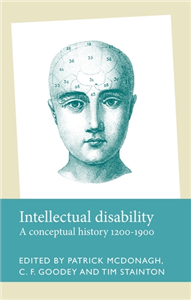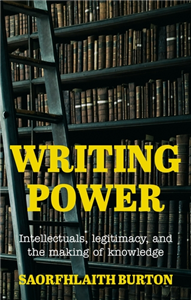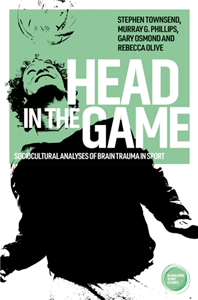Your Search Results
-
Editora do Brasil
Founded in 1943, Editora do Brasil has a wonderful history of commitment to culture and education. As a solid and experienced publisher, we are increasingly connected to the new times. One of the largest Brazilian companies in the segment, we believe in strengthening education and culture nationally and abroad. With a diverse and award-winning catalog, Editora do Brasil is always seeking to stay current and offer the best material. Our books feature a variety of themes by some of the best authors and designers, some of whom are internationally renowned.
View Rights Portal
-
Promoted Content
Is the Brain Rational?
The Findings of a Neuropsychologist
by L. Jäncke
This book takes the reader on a fascinating journey, demonstrating in an understandable and entertaining way how the brain affects our thoughts, actions, and feelings - and that this sometimes only peripherally involves reason. It shows, that the subconscious actually exists and how it affects us, how we arrive at both right and wrong decisions, how our memory works, how fragile it can be, and yet also how robust. Using insightful experiments and the latest research results, including many examples, this book presents the reader what an incredibly impressive thinking organ the brain actually is – even if it is not a purely “rational machine”. Target Group: For people interested in the results of research into the workings of the brain in the areas of decision-making, memory, and consciousness.
-
Promoted ContentOctober 2023
Watching the Brain Think
Facets of neuroscience: short thought provoking texts for the curious
by Monika Niehaus/Martin Osterloh
— An exciting and entertaining explanation of neuroscience — In the diverting and humorous style for which the author is known – learning has never been this much fun What processes in the brain are responsible for intelligence, free will, empathy or reason? Can memories be falsified? And what does actually happen in the brain when we reach puberty? Monika Niehaus and Martin Osterloh answer these and many other neuroscientific questions in their book – a fundamental work on brain research, and easy to understand, exciting and entertaining.
-
 Trusted Partner
2023
Trusted Partner
2023Food Composition Table for the Practice
The small Souci/Fachmann/Kraut
by Founded by S.W. Souci, W. Fachmann and H. Kraut. Revised by Dr. Petra Steinhaus. Edited by the Leibniz Institute of Food Systems Biology at the Technical University of Munich.
■ How many omega-3 fatty acids does salmon contain? ■ Which dairy product contains the most calcium? ■ How iron-rich is spinach, really? Whether calories, vitamins or amino acids – whether in field beans, bananas, eggs, chicken, parmesan cheese or onion – it is all here. The compact edition of the time-tested „large SFK [Souci/Fachmann/Kraut]“ offers tested data on over 70 ingredients in more than 360 foods, systematically structured according to food groups. This edition with thousands of values has been completely revised and updated by the Leibniz Institute of Food Systems Biology at the Technical University of Munich. Extra: 32 summary tables cover more than 300 other, less common foods and allow for targeted, clear comparisons. 16 orientation tables provide information about foods with particularly high or low amounts of ingredients. Nutritional values, energy content, main components and ingredients displayed in uniform systematics and a practical format – just look it up!
-
 Trusted Partner
Humanities & Social SciencesMarch 2021
Trusted Partner
Humanities & Social SciencesMarch 2021Intellectual disability
A conceptual history, 1200–1900
by Patrick McDonagh, C. F. Goodey, Timothy Stainton
This collection explores the historical origins of our modern concepts of intellectual or learning disability. The essays, from some of the leading historians of ideas of intellectual disability, focus on British and European material from the Middle Ages to the late-nineteenth century and extend across legal, educational, literary, religious, philosophical and psychiatric histories. They investigate how precursor concepts and discourses were shaped by and interacted with their particular social, cultural and intellectual environments, eventually giving rise to contemporary ideas. Intellectual disability is essential reading for scholars interested in the history of intelligence, intellectual disability and related concepts, as well as in disability history generally.
-
 Trusted Partner
Humanities & Social SciencesSeptember 2025
Trusted Partner
Humanities & Social SciencesSeptember 2025Writing power
Intellectuals, legitimacy, and the making of knowledge
by Sarah Victoria Alexandra Burton
Writing power radically rethinks the place of the canon and canonicity as objects and concepts in contemporary academia and the everyday intellectual practices of academics. It is distinctive in its demonstration of how academics' engagements with canons shape their writing practices but also how scholars' writing practices, spaces, proclivities, and desires shape the canon and changing ideas of value in canonicity. The book thinks through frequently discussed problems of legitimacy and knowledge production from fresh perspectives of lived experience and the everyday to offer new insights into the politics of knowledge in contemporary social sciences.
-
 Trusted Partner
September 2005
Trusted Partner
September 2005Was wäre, wenn ...?
Antworten auf fast alles
by Brain, Marshall / Deutsch Schmitz, Susanne
-
 Trusted Partner
Trusted Partner
-
 Trusted Partner
October 2020
Trusted Partner
October 2020Simple Food!
Anti the Food Frenzy in Our Minds
by Thomas A. Vilgis
This book follows a unique path in the ubiquitous food debate: it leads us on the trail of the origins of our food culture, from the Neolithic period to the present day. Thomas A. Vilgis has compiled a guide that combines scientific with cultural or sociological aspects. How did Stone Age man poach food? Which cereal varieties were cultivated first? What is the mysterious umami flavour all about? The cultural historical excursion gets interactive with plenty of recipes for those curious to test Kimchi with birch leaves or red cabbage in their dessert.
-
 Trusted Partner
MedicineJune 2025
Trusted Partner
MedicineJune 2025Head in the game
Sociocultural analyses of brain trauma in sport
by Stephen Townsend, Murray G. Phillips, Gary Osmond, Rebecca Olive
Head in the game brings together international scholars from multiple humanities, social science, and scientific disciplines to critically examine one of the most vexing issues in global sport: concussion. It argues that science and medicine alone cannot solve the concussion crisis: sociocultural factors must also be considered. This edited collection draws attention to the ways that social, cultural, historical, political, literary, philosophical, and legal factors have shaped the concussion crisis in sport. Head in the game is essential reading for those who want to understand how the concussion crisis came to be, and provides guidance for developing ethical and evidence-based solutions in the future.
-
 Trusted Partner
October 2020
Trusted Partner
October 2020Birds in the Mind
Life Stories from Adolescents with Mental Health Issues
by Bernd Gomeringer,Jessica Sänger, UlrikeSünkel, Gottfried M.Barth, Max Leutner
Mental health problems in children and adolescents are a taboo subject. “As ever, there are social misgivings”, says child and adolescent psychiatrist Dr. Robin Funke. “Many families find it tough when they first come to us. They feel this is a failure.” But what is it like living with depression, compulsive behaviour, anxiety and panic attacks, or with eating disorders, bulimia or anorexia? Schirm e. V., the friends association for child and adolescent psychiatry in Tübingen (Germany), asked young patients to share their stories. A moving book was created about living with mental health problems, about the dayto- day routine in psychiatric practice and the power of confidence.
-
 Trusted Partner
Humanities & Social SciencesApril 2022
Trusted Partner
Humanities & Social SciencesApril 2022Russian grand strategy in the era of global power competition
by Andrew Monaghan, Richard Connolly
-
 Trusted Partner
2018
Trusted Partner
2018The Woman Who Thought Her Husband Was a Doppelganger
When the brain goes haywire: 36 rare and unusual psychiatric syndromes
by Monika Niehaus
The human brain is a wondrous thing, highly complex and highly functional. However, the control centre of our feelings, thoughts and actions can sometimes go out of sync. Some reasons for this are known, such as genetic factors, hormonal effects or trauma. In other cases, we are still in the dark. In an extreme case scenario, the brain may create bizarre delusions – masterful narrations that the people affected fi nd completely conclusive and reasonable. Monika Niehaus has compiled 36 such disorders ranging from love madness and the gourmand syndrome – where gourmet food becomes the purpose of life – to people who desire nothing more than to have their limbs amputated. She tells gripping tales of famous and not so famous cases. With sensitivity and a considerable dose of humour she takes us into the history of art and literature, and presents scientifi c explanations. This fascinating book shows that our brain is a genius – and madness is quite often NOT inexplicable.
-
 Trusted Partner
2019
Trusted Partner
2019The Nobel Laureate Who Met a Polite Raccoon in the Woods
When the brain goes mad: 30 rare and unusual mental syndromes
by Monika Niehaus
The human brain is a highly complex and highly functional structure consisting of almost 90 billion nerve cells. But it can go out of sync, due to genetic factors, hormonal effects, trauma or other causes. In extreme cases, our control centre then creates bizarre delusions – brilliant narratives that are completely convincing to the person concerned. In her second book on such phenomena, Monika Niehaus has compiled 30 rare psychological disorders – from a conviction to have been abducted by aliens, to being sexually attracted to criminals, to the hyperthymestical syndrome where people can remember every detail of their past life. Narrated in an interesting, humorous and sensitive way, the author relates a variety of cases, some of them famous, others less so, while introducing us to the history of art and literature and presenting scientific explanations. This fascinating book shows the genius that resides in our brain – and how madness can often be explained.
-
 Trusted Partner
Trusted Partner
-
 Trusted Partner
Trusted Partner
-
 Trusted Partner
February 1999
Trusted Partner
February 1999Brainpower-Training
Das Aktivprogramm für Wissen und geistige Fitneß
by Savant, Marilyn vos / Deutsch Nutto, Kirsten
-
 Trusted Partner
Trusted Partner
-
 Trusted Partner
Humanities & Social SciencesApril 2025
Trusted Partner
Humanities & Social SciencesApril 2025The Jacobites and the Grand Tour
Educational travel and small-states' diplomacy
by Jérémy Filet
In the first monograph to fully examine the intersecting networks of Jacobites and travellers to the continent, Filet considers how small states used official diplomacy and deployed soft power - embodied by educational academies - to achieve foreign policy goals. This work uses little-known archival materials to explain how and why certain small states secretly supported the Jacobite cause during the crucial years surrounding the 1715 rising, while others stayed out of Jacobite affairs.At the same time, the book demonstrates how early modern small states sought to cultivate good relations with Britain by attracting travellers as part of a wider trend of ensuring connections with future diplomats or politicians in case a Stuart restoration never came.This publication therefore brings together a study of Britain, small states, Jacobitism, and educational travel, in its nexus at continental academies.
-
 Trusted Partner
December 2000
Trusted Partner
December 2000The Reasonable as Rational?
On Legal Argumentation and Justification. Festschrift for Aulis Aarnio.
by Herausgegeben von Krawietz, Werner; Herausgegeben von Summers, Robert S.; Herausgegeben von Weinberger, Ota; Herausgegeben von Wright, Georg Henrik von
-
 Trusted Partner
Humanities & Social SciencesApril 2026
Trusted Partner
Humanities & Social SciencesApril 2026A Confucian theory of power
by Sungmoon Kim
In the book's lead essay, Sungmoon Kim offers a comprehensive analysis of Confucian power. Through a blend of philosophical, political, and historical analysis, Kim challenges the dominant idea that Confucianism is primarily centred on virtue ethics. Instead, he argues that Confucianism perceives power through the prism of responsibility. Kim not only traces this perspective throughout history but also demonstrates its relevance to contemporary society. He contrasts this Confucian perspective with Western political theory's view of power as control. Political theorists and philosophers will offer essay responses to Sungmoon Kim's provocation, offering a dialogue approach to provide a comprehensive analysis of the Confucian conception of power.






























